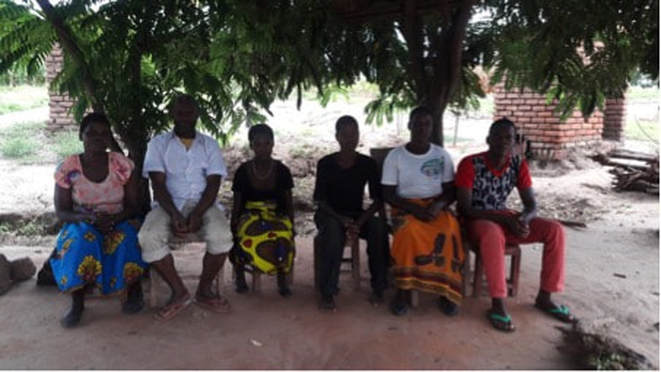Written by CorpsAfrica/Malawi Volunteer Ms. Ireen Kanjala
The Chewa people are descendants of the Bantu tribe, who widely settled in the central part of Malawi. Among many distinctive moral values and cultural norms, the Chewa people are widely known for their highly magnified traditional dances (i.e. Gule Wamkulu), beliefs, and perceptions towards women in society.
Culturally, Chewa women are viewed as having a social life that revolves around defined cultural gender norms. This division centers on women being largely engaged in household chores and lighter agricultural activities. The Chewa people strongly believe that there is a high demarcation between women and men in terms of social interaction and work in the community.
Traditionally, grooming a Chewa woman begins right at birth. In a Chewa family, the father’s relatives name the baby, and if it is the last born in the family the parents are not allowed to call their daughter by name. Instead they call her “baby girl”. As a sign of celebration, a Chewa baby is given beads that are worn around the neck, legs, hands, and waist.
A Chewa girl undergoes a ritual known as Chinamwali, a traditional girl initiation ceremony. It is done soon after a girl hits puberty. The girl is taken into confinement for seven days, where she is counselled by elder women (known as Anankungwi) on a number of issues believed to prepare her into adulthood. The topics discussed during this initiation, include:
- Menstrual hygiene
- Good manners and respect for the elderly
- Sexual abstinence
- Why they should no longer eat eggs, for fear of becoming barren
- Why they should no longer enter their parents’ bedroom
- How to carry out household chores
- Good behavior towards their husbands once they are married, and to dress respectfully
The initiation is finished when the girl leaves the house after being shaven of all hair, including pubic hair.
Personally, I respect culture diversity and traditional values of different tribes, however some of these practices violate women’s and children’s rights and therefore require modification or abolition. Others promote the enjoyment of human rights, and therefore I believe require to be preserved. According to my community, Chinamwali is viewed as an acceptable culture practice, which should be maintained and preserved by the Chewa tribe because “ndi chikhalidwe cha makolo” (ancestral tradition).
Over time, some of the beliefs and traditions about women have been modified, meaning today a Chewa woman does not only take responsibilities at home as a housewife, but can also partake in society as a career woman, taking up leadership roles in the community.
I believe that it is crucial for Malawian culture to be preserved, but also that communities are made aware of the harmful practices that need to be modified or removed. We as a country can give up harmful practices, without giving up meaningful aspects of our culture.

